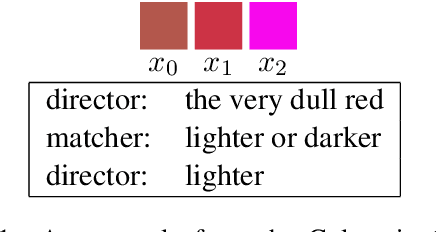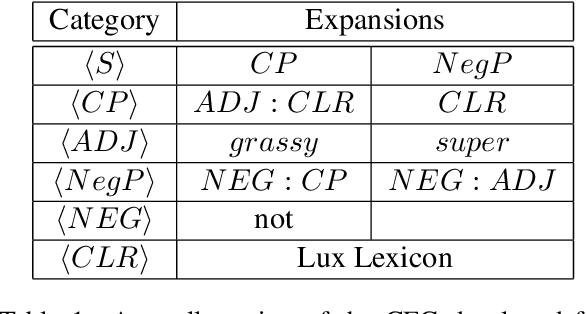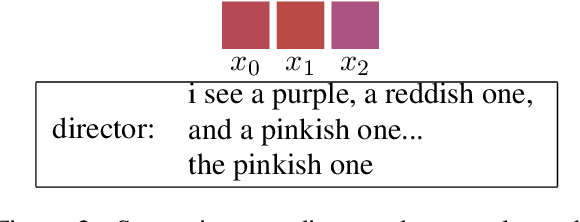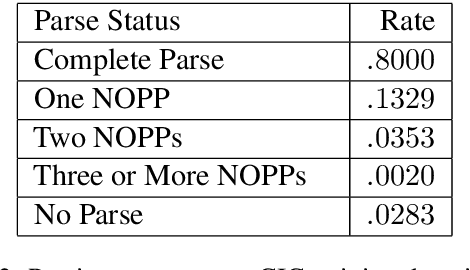Michael Fellner
Discourse Coherence, Reference Grounding and Goal Oriented Dialogue
Jul 08, 2020



Abstract:Prior approaches to realizing mixed-initiative human--computer referential communication have adopted information-state or collaborative problem-solving approaches. In this paper, we argue for a new approach, inspired by coherence-based models of discourse such as SDRT \cite{asher-lascarides:2003a}, in which utterances attach to an evolving discourse structure and the associated knowledge graph of speaker commitments serves as an interface to real-world reasoning and conversational strategy. As first steps towards implementing the approach, we describe a simple dialogue system in a referential communication domain that accumulates constraints across discourse, interprets them using a learned probabilistic model, and plans clarification using reinforcement learning.
 Add to Chrome
Add to Chrome Add to Firefox
Add to Firefox Add to Edge
Add to Edge